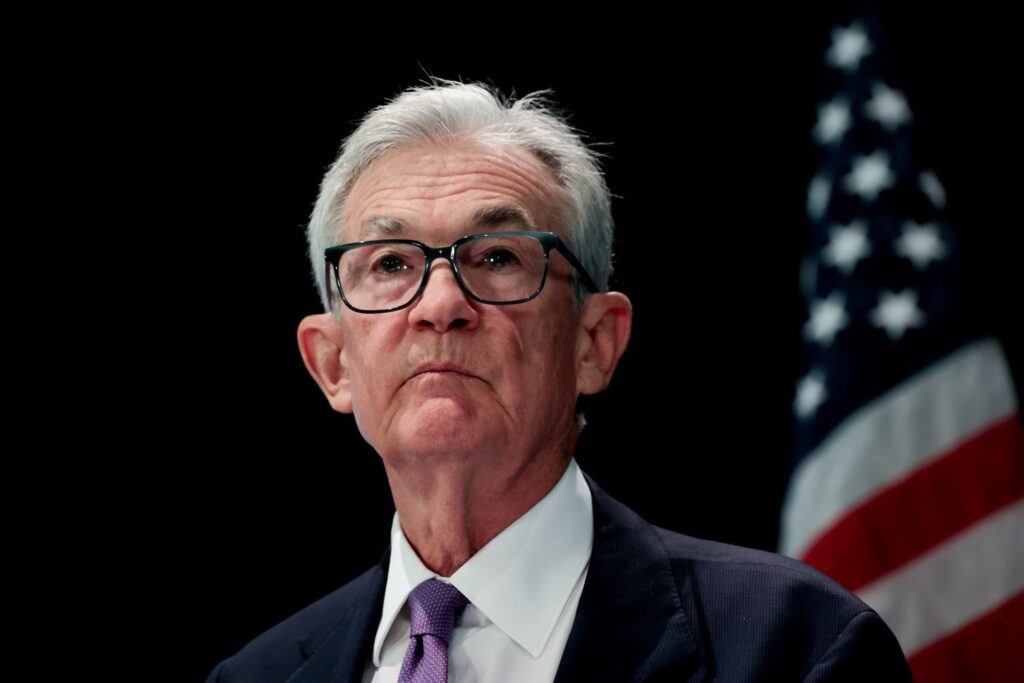:max_bytes(150000):strip_icc():format(jpeg)/GettyImages-2240613206-aaec1e6c850441fc898364a65272f44f.jpg)
Key Takeaways
- Federal Reserve officials have voiced differing opinions about how the central bank should set interest rates in the coming months, with some favoring steep rate cuts and others advocating a more cautious approach.
- The Fed’s next moves aren’t obvious because its dual mandate to keep inflation low and employment high is pulling its monetary policy in opposite directions.
Officials at the Federal Reserve are divided about how to set the central bank’s key interest rate in the coming months, and may not get the data they need to settle their differences anytime soon.
As evidenced in recent speeches and the minutes of their September meeting, a split is emerging between members of the Federal Open Market Committee. One group is more concerned about the deteriorating labor market and thinks the Fed should lower its benchmark interest rate significantly to stave off job losses. The other group sees inflation as the greater threat, and advocates for a more cautious approach to rate cuts.
Investors broadly expect the Fed to cut interest rates by a quarter of a percentage point at each of its next two meetings. However, the path after that is murkier, according to the CME Group’s FedWatch tool, which forecasts rate movements based on fed funds futures trading data.
How This Affects The Economy
Disagreement among Fed officials highlights the dilemma the central bank faces in dealing with the fallout from tariffs and other economic policies implemented by the White House. The economy is in a rare position, facing higher inflation and the risk of surging unemployment at the same time.
Fed officials are trying to balance the demands of their dual mandate from Congress to keep inflation low and employment high. The Fed could help the faltering labor market by lowering its key interest rate, or it could fight inflation by keeping it higher, but it can’t do both at the same time. Members of the Fed’s 12-member policy committee have differing views on how to approach that dilemma.
In the “cautious” camp, Austan Goolsbee, president of the Chicago Fed, warned against cutting interest rates too quickly in an interview with the Financial Times on Monday.
Tariff policies have pushed inflation measures up in recent months and kept them above the Fed’s target of a 2% annual rate. However, many economists believe tariffs will be a one-time boost to prices and not lead to a spiral of inflation. Goolsbee said he was wary of making that assumption in the wake of the pandemic, when what was initially thought to be a transitory increase in prices due to disrupted supply chains led to an alarming surge in inflation in 2022.
“Let’s be a little wary about frontloading all the rate cuts before we know that inflation’s going to go back down to 2%,” Goolsbee said.
On the farthest end of the other camp, Fed Governor Stephen Miran has advocated for steep rate cuts, arguing that President Donald Trump’s economic policies will ultimately push down inflation.
A Healthy Debate
The Fed’s policy committee tries to reach a consensus on its interest rate moves, and usually votes unanimously at its policy meetings. But several members have cast dissenting votes at its most recent meetings, highlighting the differences of opinion on strategy.
Economic data on inflation and job losses could clarify whether inflation or unemployment is the more urgent threat to the economy, but the ongoing government shutdown has delayed key reports on those topics.
Fed Chair Jerome Powell acknowledged the disagreements Tuesday in a Q&A session at an economics conference in Philadelphia.
“Consensus is great, but the most important thing of all is to get it right,” Powell said. “You have a situation here where inflation is above target and gently rising. The labor market is subject to pretty clear downside risks. What do you do? How do you think about that? That’s not a problem that we that you face very often in central banking or in the economy, and people are going to have different weights and different risk aversion and different risk appetites on those things. It would be kind of surprising if you had no debate over those things.”


